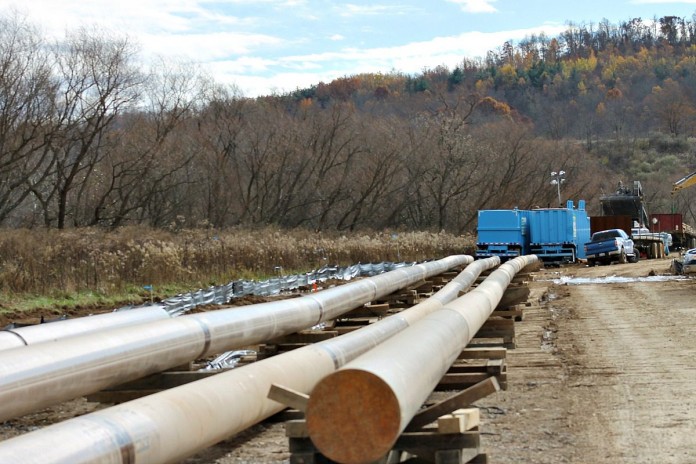SALEM, Ohio – Drive north, south east or west across Ohio and you quickly run into pipeline construction. Safety concerns, however, aren’t just with the construction, but how to live safely with pipelines after they’re built.
Peter Lidiak, pipeline director for the American Petroleum Institute, spoke at the Ohio Utica Midstream Development Forum: Pipelines and Processing Nov. 6. He said the goal is letting landowners do what they want with their land, but keeping them safe when they work around pipelines.
Pipeline burial depth
Land that has a pipeline easement can be used for normal uses because regulations require pipeline be buried 48 inches deep. In some areas, it is allowed 36 inches and 18 inches in a rocky area, but in shallow depths, there are additional requirements such as cement.
However, Lidiak cautioned, “Don’t assume you can do what you want.”
Landowners should get used to using the one-call, or “call before you dig” system when it comes to doing something with their land.
He said that as long as landowners stay within 16 inches of the surface, with most pipelines landowners shouldn’t run into problems.
Erosion
Lidiak cautions an older pipeline sites may have been eroded, and the pipeline may be closer to the surface than when the line was buried.
Lidiak recommends any farmer who plans on using a tile plow or a stump ripper to use the one-call system before using such a machine.
He said the gas line company will be out within 48 hours in most cases to locate the line and even hand dig them in some cases.
“Our intention is not to inconvenience farmers, but to keep them safe,” said Lidiak.
No fear
He added pipelines shouldn’t be feared, but landowners have to be constantly aware the lines are in the ground.
He said there are more than 2 million miles of pipelines and 300,000 miles of gas transmission lines.
“We just have to learn to live with them,” said Lidiak.
A pipeline company checks the right of way about 26 times a year and federal law prevents the pipeline company from going three weeks without checking the right of way.
Landowners important
Lidiak said landowners are valuable to the gas line company.
“The pipeline companies value relationships with the landowner for several reasons,” he said. “We rely on the landowners as partners.”
The landowner is often the first line of defense when a problem erupts with the pipeline. The landowner can be the one that spots the issue and alerts the pipeline company before the problem gets bigger.
STAY INFORMED. SIGN UP!
Up-to-date agriculture news in your inbox!











